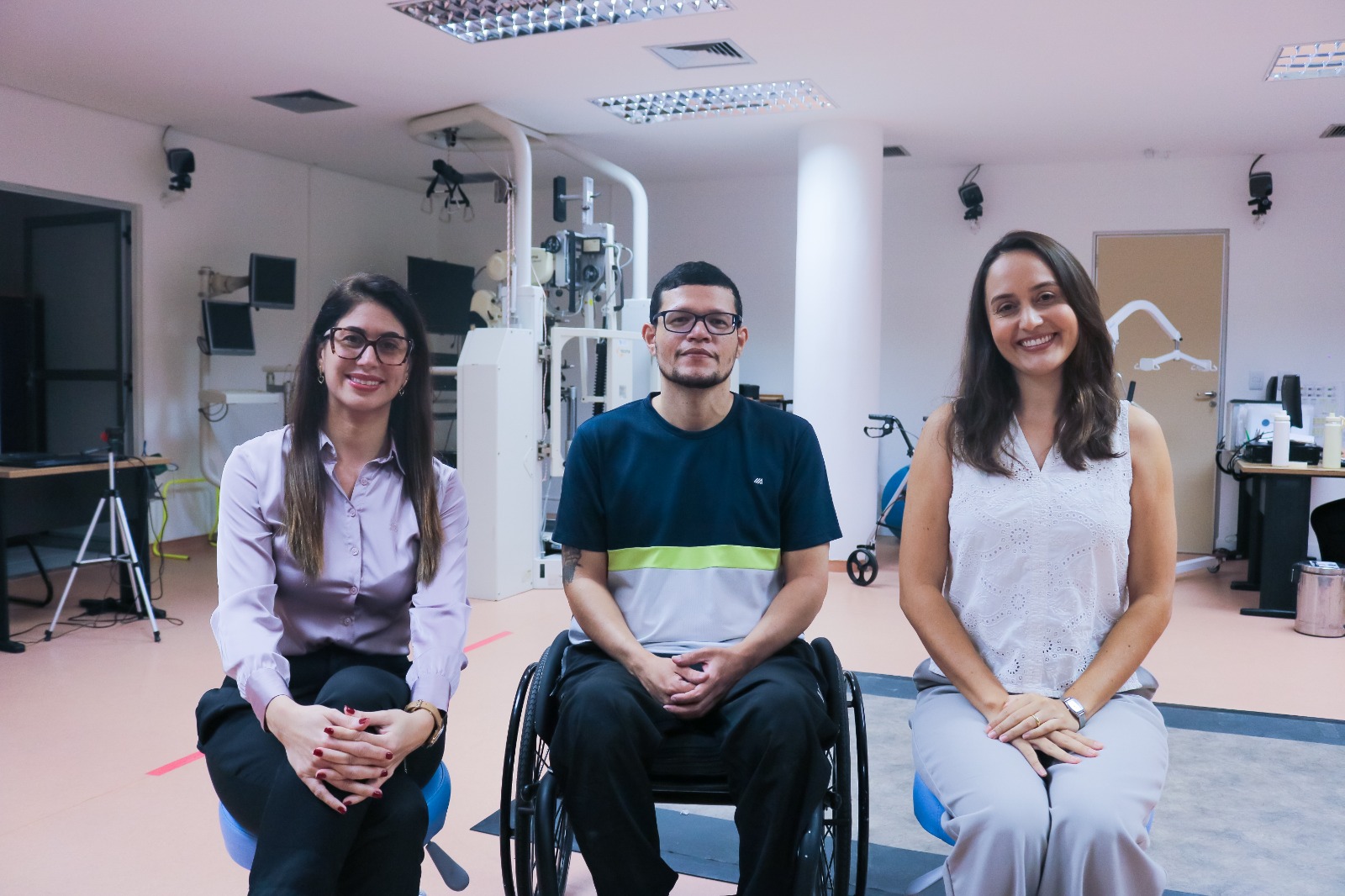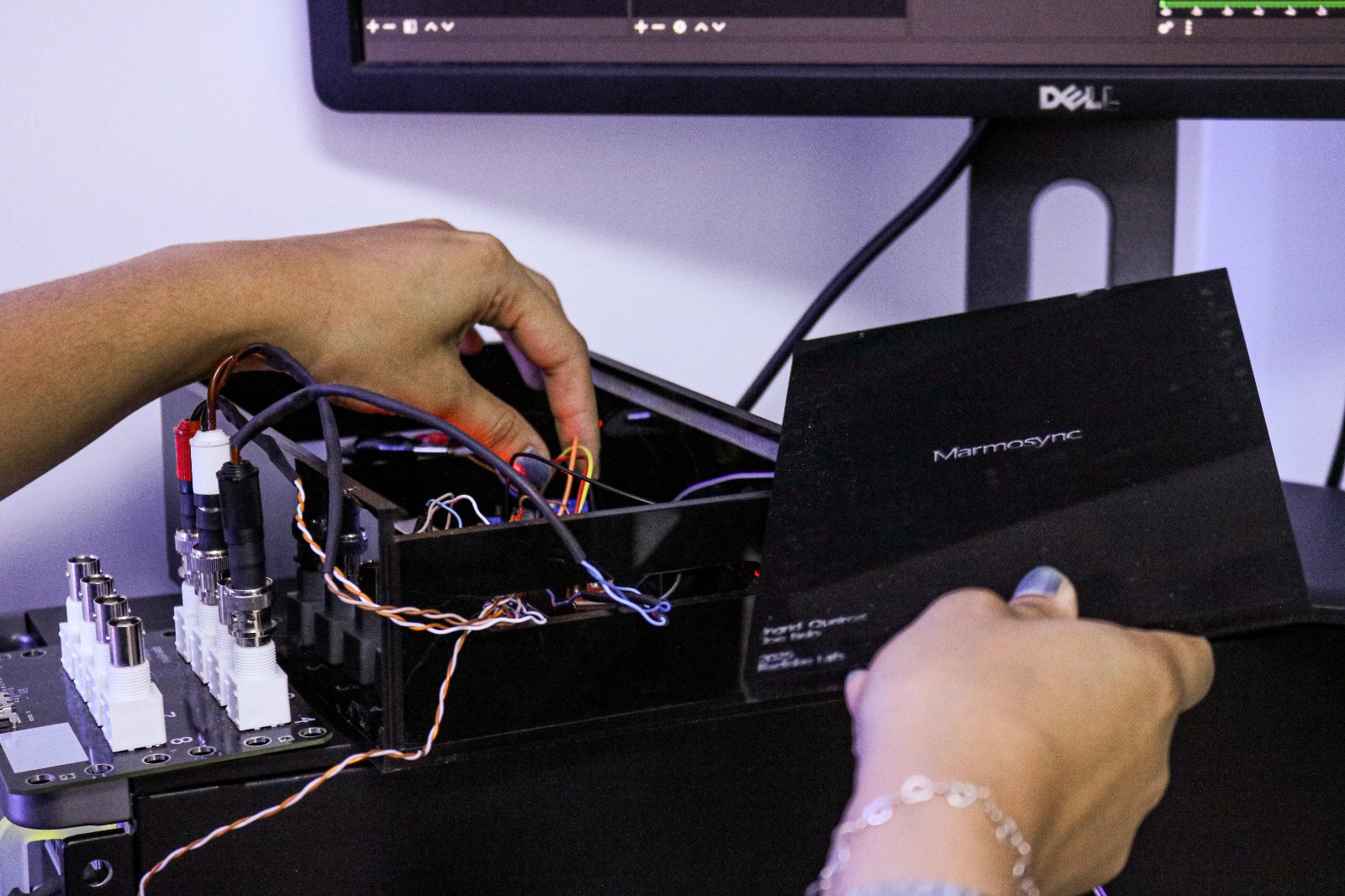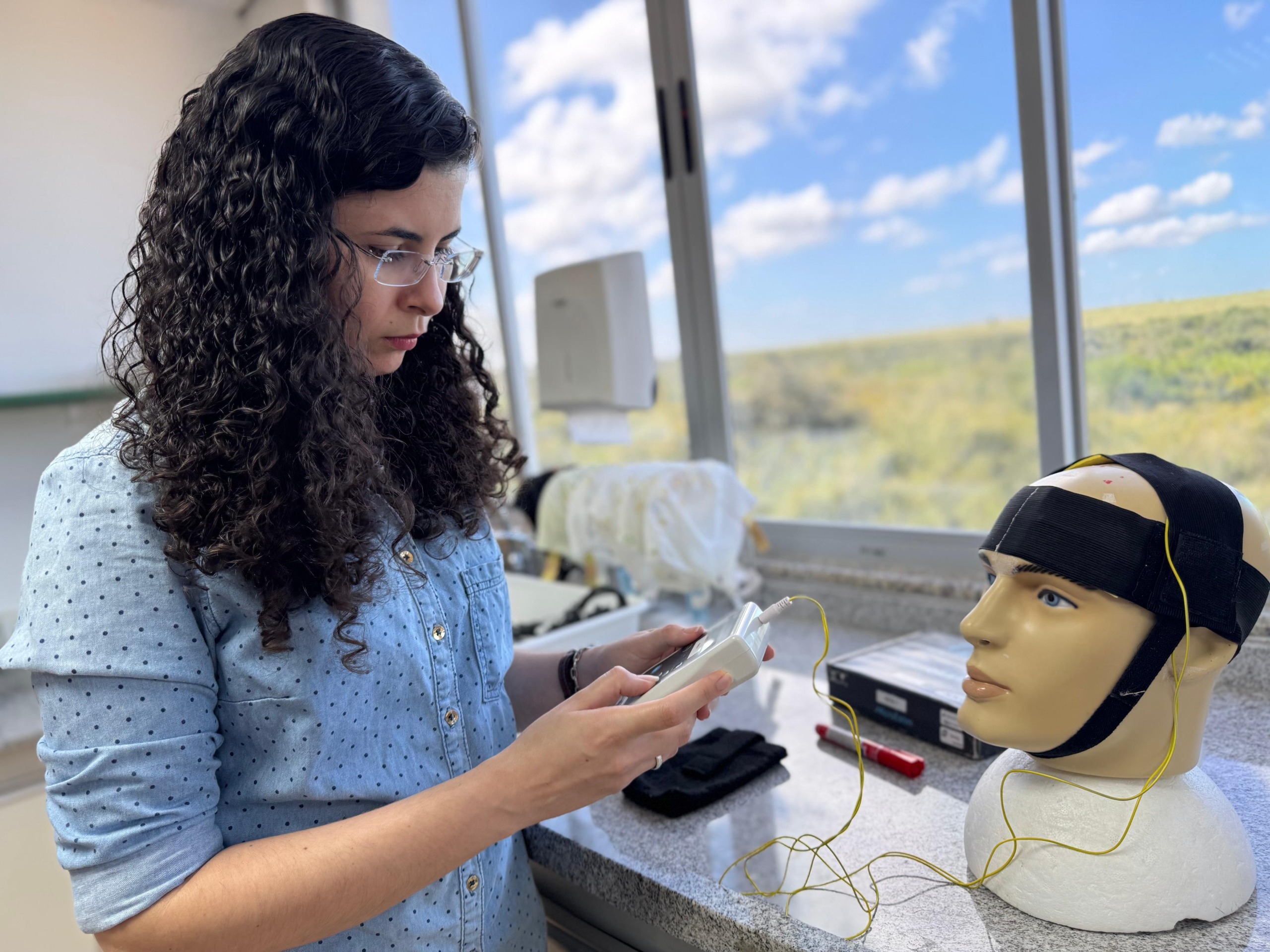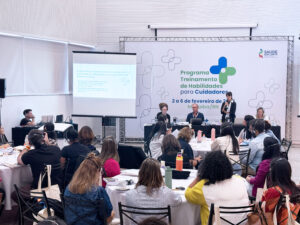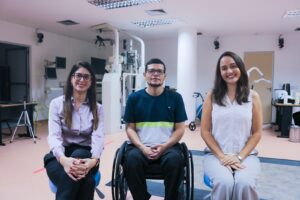The Government of Rio Grande do Norte launched this week the Maternal Mortality Reduction Plan, which has a partnership with the Santos Dumont Institute (ISD) regarding Permanent Health Education for obstetric hospital care, initially at the Alfredo Mesquita Regional Hospital, in Macaíba, with prospects for expansion to other regions of the state. The project aims to qualify health professionals to deal with cases of high gestational risk, an action front – health education – that has been part of the ISD routine for over a decade.
The reality of maternal mortality in Brazil and Rio Grande do Norte – which gained unprecedented visibility during the Covid-19 pandemic – the actions foreseen in the Plan that will be developed by the Institute and other ISD strategies to help reduce mortality rates and "near death" related to pregnancy and the puerperium were the subject of a live interview by the general director of ISD, Reginaldo Freitas Jr., in this Wednesday's edition (05), of the Jornal da Tropical, hosted by journalist Margot Ferreira.
INSTITUTE PERFORMANCE
The ISD already develops permanent health education actions to reduce maternal mortality in primary care, and in more than a decade of acting as an outpatient reference center for the SUS in Rio Grande do Norte, are among the services offered to the population, high-risk prenatal care, specialized care for pregnant women and children with HIV/AIDS; Infectology in pregnancy; fetal medicine; nursing in women's health and children's health; pediatrics; child neurology and ultrasound.
PROJECT
There is also an ongoing project – with funding approved by the Bill & Melinda Gates Foundation and the National Council for Scientific and Technological Development (CNPq) – to create an indicator in Brazil that can help prevent cases of “near death” and deaths in pregnancy, childbirth and postpartum.
In this project, the ISD proposes using artificial intelligence to correctly identify and predict cases of “maternal near-miss” – as the records of women who almost die during pregnancy, childbirth or postpartum as a result of serious complications from bleeding, hypertension or infection are called in English. The work will be carried out over 18 months, starting in 2021.
ISD is a Social Organization linked to the Ministry of Education.
Read the full interview below or watch the content in the video, available on the Instituto Santos Dumont channel on youtube.
INTERVIEW | REGINALDO FREITAS JÚNIOR, DIRECTOR GENERAL OF INSTITUTO SANTOS DUMONT (ISD)
Margot: Did youdid a survey last year that pointed out that Brazil has more maternal deaths associated with Covid-19 than eight countries put together, is that right?
Reginaldo: Yes, as Brazil has had very high maternal mortality rates for some time, the Covid-19 scenario has magnified this reality and this sad reality is accentuated in 2021. There are recent data that show that maternal mortality among our pregnant women associated with Covid continues to rise and is a very serious public health issue.
M: The Institute had a project approved to create an indicator of these deaths here in Brazil and will receive funding from the American Bill and Melinda Gates Foundation. Tell us about it.
A: Official statistics, not only in Brazil but all over the world, are based on women who died, on deaths that saw statistics, but we already know and Covid also brought this reality that the compromise of maternal health can happen in a serious way that does not result in death. It is an expression that does not have a literal translation into Portuguese but that the world calls Near-Miss, it is that woman that we almost lost, that almost died due to complications of pregnancy, childbirth or the puerperium and who does not appear in official statistics. So we continue to believe in the investigation of maternal death as a powerful tool for improving quality, we continue to believe that we should strengthen these actions, but we also think it is important to broaden this look, broaden this horizon of analysis to this group of women who got sick, who had conditions of disease morbidity, as we call it, but who did not appear in official statistics as a case of maternal death.
M: Do you already have an idea of this funding, the value of this amount that can come here from the Bill and Melinda Gates Foundation?
A: This funding is part of a national call that took place last year and involved different projects funded by the Foundation in the country. He seeks to work with data in large volume and machine learning, as we call it. In this specific project, the budget is around R$ 235 thousand, including the entire project with scholarships, equipment, duration, articulation with other centers in the country, but the total volume mediated by the Ministry for the public notice was higher.
M: How will the Santos Dumont Institute work in practice with the government to reduce these numbers?
A: We were very happy with the Government's proposal and the proposal of the Secretary of State for Public Health for this partnership, it is a partnership centered on the key word in your question: “in practice”. So it intends to improve processes, work on the management of indicators, to establish a hospital in the Metropolitan Region of Natal, which is a hospital in our territory, in a territory that we already operate here in Macaíba, with a strategy of Permanent Health Education, which basically means improving work practice, educating based on work practice processes to qualify obstetric care. So, the Government, Sesap and society dream that soon this maternity hospital will be able to attend cases of high gestational risk, today it is a maternity hospital whose performance profile is what we call 'usual risk', and this process, which It lasts for one year – starting in the second half of 2021 – and has the main objective of qualifying this hospital to prepare itself so that in the very near future it will also begin to care for high gestational risk.
Click HERE to read more about the Plan and ISD's partnership with the government of RN.
M: The topic gained visibility with the pandemic, but it has always been a problem in Brazilian public health. What is the picture of this real problem here in Rio Grande do Norte?
A: If we are going to talk about numbers, maybe it will help the viewer to scale. This is a global challenge, it is not by chance that the reduction of maternal mortality is the first goal of the objective that has to do with the health component in the proposed 2030 Agenda of the UN Sustainable Development Goals. So the global target would be to reduce to less than 70 deaths per 100,000 live births, that's how we calculate this indicator. The number of women who die due to pregnancy, childbirth and up to 42 days after childbirth together with the number of live births in the area. So, ideally, our country should reach less than 30 deaths per 100,000 live births. This number is around 62 to 76 deaths for every 100,000 live births. The ideal in the world, recommended by the World Health Organization (WHO), would be less than 10 deaths per 100,000 live births. They would be those deaths that we cannot avoid. For Brazilian society to understand the dimension of this, which is a problem that our society has not been able to solve for decades, about 98% of these deaths could be avoidable. They happen due to causes such as bleeding after childbirth, high blood pressure during pregnancy, infections due to childbirth or due to abortion and these causes are considered completely preventable. We are talking about deaths that should not happen and that are closely related to recognition, with how much society values women's health.
M: Yeah, the basics are missing, basic care...
A: Also, it's a complex problem that doesn't have a unique solution, but you were also needed. Strengthening primary health care with the guarantee of family planning, in which people get pregnant when they want, that they get pregnant when they can get pregnant, is a very efficient strategy to reduce maternal mortality. Prenatal care, which is a right, one of the points for safe motherhood, is essential for the prevention of mortality, for the prevention of risks, for recognizing the situations that deserve more care and the guarantee of a safe delivery, obviously . We are talking about the chain of care that is obstetric care, the central focus of this partnership initiative with the Government now, which needs to be strengthened. We need to guarantee the right to safe motherhood for Potiguar women, which is why the Nascer Potiguar project, which is also included in the State Plan for the Reduction of Maternal Mortality, fills us with hope, because it is focused on ensuring good practices and bringing to the reality of our hospitals what the world understands that It is better for women's care.
*Reginaldo Freitas Júnior is director general of the ISD, doctor in Medical Sciences, specialist in fetal medicine and national instructor of the Zero Maternal Death Strategy for Postpartum Hemorrhage of the Pan American Health Organization and Ministry of Health.
Text: Kamila Tuenia – Journalism Intern / Ascom – ISD
Text editing: Renata Moura – Journalist / Ascom – ISD
Video: Tropical TV reproduction
Communication Office
comunicacao@isd.org.br
(84) 99416-1880
Santos Dumont Institute (ISD)
It is a Social Organization linked to the Ministry of Education (MEC) and includes the Edmond and Lily Safra International Institute of Neurosciences and the Anita Garibaldi Health Education and Research Center, both in Macaíba. ISD's mission is to promote education for life, forming citizens through integrated teaching, research and extension actions, in addition to contributing to a fairer and more humane transformation of Brazilian social reality.





